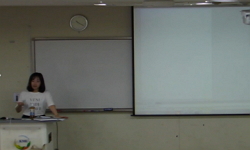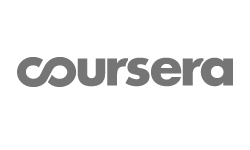본 논문은 통합교과 교육과정에 관한 국내 선행연구들과 2015개정 통합교과 교육 과정이 학습자들의 집단 간 문화다양성을 반영하고 있는지 비판적으로 검토하고, 모든 학습자에게 평등하고...
http://chineseinput.net/에서 pinyin(병음)방식으로 중국어를 변환할 수 있습니다.
변환된 중국어를 복사하여 사용하시면 됩니다.
- 中文 을 입력하시려면 zhongwen을 입력하시고 space를누르시면됩니다.
- 北京 을 입력하시려면 beijing을 입력하시고 space를 누르시면 됩니다.

통합교과 교육과정에 관한 논의 및 개선 방향 탐색 = Redesigning the Integrated Curriculum for All Students: Based on Cultural Differences among Diverse Groups
한글로보기https://www.riss.kr/link?id=A105552618
- 저자
- 발행기관
- 학술지명
- 권호사항
-
발행연도
2018
-
작성언어
-
- 주제어
-
KDC
373
-
등재정보
KCI등재
-
자료형태
학술저널
-
수록면
755-785(31쪽)
- DOI식별코드
- 제공처
-
0
상세조회 -
0
다운로드
부가정보
국문 초록 (Abstract)
본 논문은 통합교과 교육과정에 관한 국내 선행연구들과 2015개정 통합교과 교육 과정이 학습자들의 집단 간 문화다양성을 반영하고 있는지 비판적으로 검토하고, 모든 학습자에게 평등하고 유의미한 학습경험을 제공하는 통합교과 교육과정 설계 방향을 탐색하는 데 목적이 있다. 이를 위하여 본 논문은 첫째, 집단 간 문화다양성에 대한 인정이 정의롭고 평등한 교육을 실현하는 데 필수불가결한 원리임을 설명하였다. 둘째, 집단 간 문화다양성을 중심으로 제4차 교육과정부터 2011개정 교육과정까지 지속된 통합교과 교육과정에 관한 주요 논의들과 2015개정 통합교과 교육과정을 검토하였으며, 그 결과 (1) 통합교과 교육과정에 관한 논의에서 학습자들의 집단 간 문화다양성에 관한 논의가 간과되어 왔으며 (2) 2015개정 통합교과 교육과정의 성격, 목표, 내용체계 및 성취기준, 교수학습 및 평가 방향 전반에 걸쳐 집단 간 문화다양 성이 표면적인 수준에서 다루어지고 있는 것으로 나타났다. 마지막으로 본 논문은 문화감응교육(culturally responsive teaching)과 지식자본(funds of knowledge) 이론을 기반으로 학습자들의 집단 간 문화다양성을 섬세하게 고려한 통합교과 교육과정 설계 방안을 제안하였다. 본 논문이 ‘모든 학습자를 위한 통합교과 교육과정’ 개발 및 실행에 관한 후속 논의들을 확장하고 지속하는 촉진제가 될 수 있기를 기대한다.
다국어 초록 (Multilingual Abstract)
education efforts for multicultural democratic society, this study begins with the assumption that recognizing cultural differences among people from diverse groups is a key for promoting social justice and equity in education. Second, based on the concept of group differences, this study critically analyzed existing studies on the integrated
curriculum, and found that issues of cultural differences have been at the margin of the existing studies. In addition, this study found that the 2015 nation-level integrated curriculum dealt with the concept of cultural diversity at a superficial level. Finally, based upon major principles of culturally responsive teaching and funds of knowledge
this study suggested strategies for creating a culturally relevant integrated curriculum in which cultural diversities among different groups of people composing South Korean society are deeply recognized throughout its nature, goals, content, standards, instruction, and evaluation. This study will contribute to extending conversations and
scholarship regarding the development of integrated curriculum for all students.
The integrated curriculum which has made progress in a dialectical relationship between the leaner discourse and the discipline discourse with continuous efforts for defining its identity for the last three decades currently encounters another issue: ...
The integrated curriculum which has made progress in a dialectical relationship between the leaner discourse and the discipline discourse with continuous efforts for defining its identity for the last three decades currently encounters another issue: What should an integrated curriculum for all students look like? Located in the context of
education efforts for multicultural democratic society, this study begins with the assumption that recognizing cultural differences among people from diverse groups is a key for promoting social justice and equity in education. Second, based on the concept of group differences, this study critically analyzed existing studies on the integrated
curriculum, and found that issues of cultural differences have been at the margin of the existing studies. In addition, this study found that the 2015 nation-level integrated curriculum dealt with the concept of cultural diversity at a superficial level. Finally, based upon major principles of culturally responsive teaching and funds of knowledge
this study suggested strategies for creating a culturally relevant integrated curriculum in which cultural diversities among different groups of people composing South Korean society are deeply recognized throughout its nature, goals, content, standards, instruction, and evaluation. This study will contribute to extending conversations and
scholarship regarding the development of integrated curriculum for all students.
목차 (Table of Contents)
- Ⅰ. 서 론
- Ⅱ. 집단 간 문화다양성과 정의로운 교육
- Ⅲ. 통합교과 교육과정에 대한 비판적 고찰: 집단 간 문화다양성을 중심으로
- Ⅳ. 집단 간 문화다양성을 기반으로 한 교육과정 이론
- Ⅴ. 결론 및 논의: 집단 간 문화다양성을 기반으로 한 통합교과 교육과정 설계
- Ⅰ. 서 론
- Ⅱ. 집단 간 문화다양성과 정의로운 교육
- Ⅲ. 통합교과 교육과정에 대한 비판적 고찰: 집단 간 문화다양성을 중심으로
- Ⅳ. 집단 간 문화다양성을 기반으로 한 교육과정 이론
- Ⅴ. 결론 및 논의: 집단 간 문화다양성을 기반으로 한 통합교과 교육과정 설계
동일학술지(권/호) 다른 논문
-
보육교사의 자아탄력성, 셀프리더십 및 행복감의 구조적 관계
- 학습자중심교과교육학회
- 김윤희(Kim, Youn Hee)
- 2018
- KCI등재
-
초·중학교 학부모의 학부모회 인지도 및 참여 관련요인 분석
- 학습자중심교과교육학회
- 김은영(Kim, Eunyoung)
- 2018
- KCI등재
-
초등학교 저학년 학부모의 담임교사 상담경험에 대한 질적 연구
- 학습자중심교과교육학회
- 김한별(Kim Han-byul)
- 2018
- KCI등재
-
지위이론(positioning theory)을 통한 초등학교 수업관찰의 접근
- 학습자중심교과교육학회
- 김현욱(Kim Hyunwook)
- 2018
- KCI등재




 스콜라
스콜라






